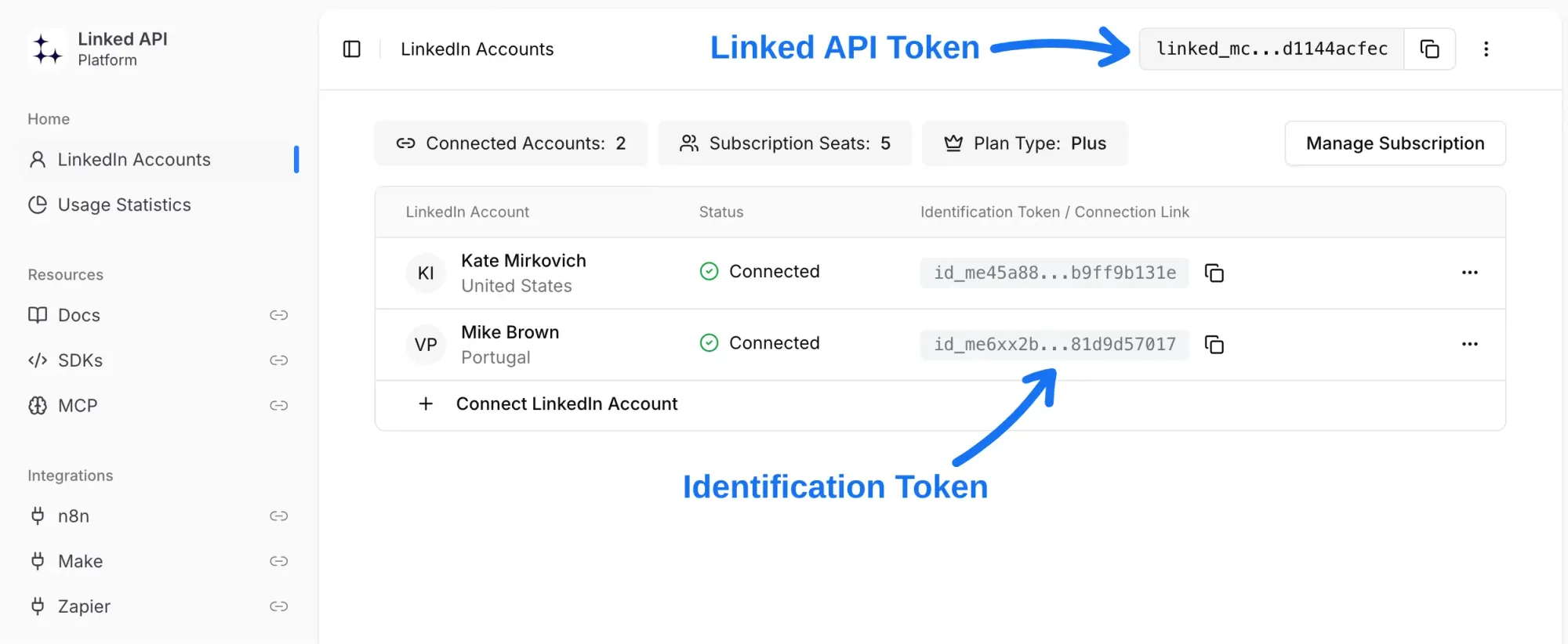Making requests
This page explains how to make requests to Linked API, including available endpoints, authorization process, response structure, and common errors.
Endpoints
https://api.linkedapi.io/workflows – for executing workflows.
https://api.linkedapi.io/conversations/poll – for polling conversations.
https://api.linkedapi.io/stats/actions – for checking API usage statistics.
Authorization
Requests to all endpoints must include 2 authorization headers:
linked-api-token– your main token that enables overall Linked API access.identification-token– unique token specific to each managed LinkedIn account.
You can obtain these tokens through our platform, as demonstrated below:

Response structure
All responses in Linked API have the following structure:
- For successful requests:
{
"success": true,
"result": { /* Endpoint specific result */ }
}
- For requests with errors:
{
"success": false,
"error": { /* Common or endpoint specific error */ }
}
Common errors
Below is a list of common errors relevant to all endpoints. Additionally, some endpoints have their own specific errors, so check the related documentation pages.
linkedApiTokenRequired
{
"success": false,
"error": {
"type": "linkedApiTokenRequired",
"message": "'linked-api-token' is missing in request headers."
}
}
invalidLinkedApiToken
{
"success": false,
"error": {
"type": "invalidLinkedApiToken",
"message": "The provided 'linked-api-token' is invalid."
}
}
identificationTokenRequired
{
"success": false,
"error": {
"type": "identificationTokenRequired",
"message": "'identification-token' is missing in request headers."
}
}
invalidIdentificationToken
{
"success": false,
"error": {
"type": "invalidIdentificationToken",
"message": "The provided 'identification-token' is invalid."
}
}
subscriptionRequired
{
"success": false,
"error": {
"type": "subscriptionRequired",
"message": "No purchased subscription seats available for this LinkedIn account."
}
}
💡
Add additional seats, renew the subscription for existing seats, or check for any payment issues on the platform.
invalidRequestPayload
{
"success": false,
"error": {
"type": "invalidRequestPayload",
"message": "Invalid request body/parameters: {validation_message}."
}
}